
THREAD: uk suspends arms
LifeLine™ Media threads use our sophisticated algorithms to construct a thread around any topic you want, providing you with a detailed timeline, analysis, and related articles.
News Timeline


BRITAIN’S Bold Military Boost to Ukraine: A Game-Changer?
— Britain announced a major military support package for Ukraine, pledging over $580 million alongside Norway. This aid includes drones, radar systems, and anti-tank mines. The goal is to strengthen Ukraine’s defenses against the ongoing Russian invasion.
Ukrainian Defense Minister Rustem Umerov stressed the need for advanced air defense systems like Patriot missiles. He urged Western allies to supply these systems to shield Ukrainian cities from Russian ballistic threats, noting that such equipment is available among Ukraine’s partners.
Russia holds a strategic edge as the conflict enters its fourth year. Ukrainian officials expect a new Russian offensive aiming to boost their position in ceasefire talks. The situation remains tense with both sides gearing up for possible escalations.
The 27th meeting of the Ukraine Defense Contact Group was held in Brussels, led by Britain and Germany. U.S. Defense Secretary Pete Hegseth was notably absent but joined via video after returning from Panama earlier this week.

GREENPEACE’S SHOCKING Stunt at US Embassy Exposed
— Greenpeace activists, led by UK figurehead Will McCallum, were arrested after a bold protest at the U.S. embassy in London. They poured “blood-red dye” into a pond to protest U.S. arms sales to Israel amid the Gaza conflict. The group cleverly used bicycles disguised as delivery bikes to transport containers of non-toxic dye labeled "Stop Arming Israel.
The Metropolitan Police acted quickly, arresting six individuals for criminal damage and conspiracy charges. A spokesperson confirmed that no breach of the secure perimeter occurred since the pond is accessible via a public footpath.
This protest underscores Greenpeace’s ongoing controversial tactics, even as they face financial troubles and possible bankruptcy. The group’s methods continue to ignite debate over their effectiveness and legality in highlighting international issues.;

UK’S NINJA SWORD BAN: Bold Move or Misguided Strategy?
— The UK government has banned the sale and possession of ninja swords to tackle rising knife crime in urban areas. This new law aims to limit access to these weapons, which are linked to more violent incidents. Authorities hope this will reduce knife-related violence and improve public safety.
Knife crime is a growing concern in the UK, prompting calls for stricter rules on various knives, including specially designed weapons. The ninja sword ban is part of a larger effort to cut down on violent crime overall.
Reactions are mixed. Some applaud the government’s proactive approach, while others argue that bans may not address violence’s root causes. Critics suggest focusing on underlying issues instead of just banning items.
This ban is one of several measures by the government to fight crime and boost community safety, including more funding for police and programs aimed at reducing violence.
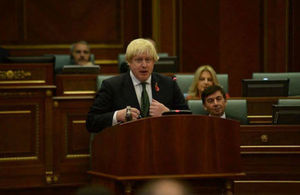
UK’S URGENT CALL: Kosovo-Serbia Peace Talks Needed NOW
— The UK Foreign Secretary urges Kosovo and Serbia to advance their peace talks. This call highlights the UK’s commitment to fostering dialogue for regional stability. The tensions have been ongoing since Kosovo declared independence in 2008.
The UK has a history of facilitating discussions between these nations, focusing on resolving territorial disputes and issues of sovereignty recognition. The Foreign Secretary stressed that successful talks are vital for both their relations and Europe’s security.
Recent events in the Balkans have raised fears of renewed conflict, making the UK’s involvement crucial. The government plans to take a more active role in these negotiations, aiming to promote peace and cooperation in the region.
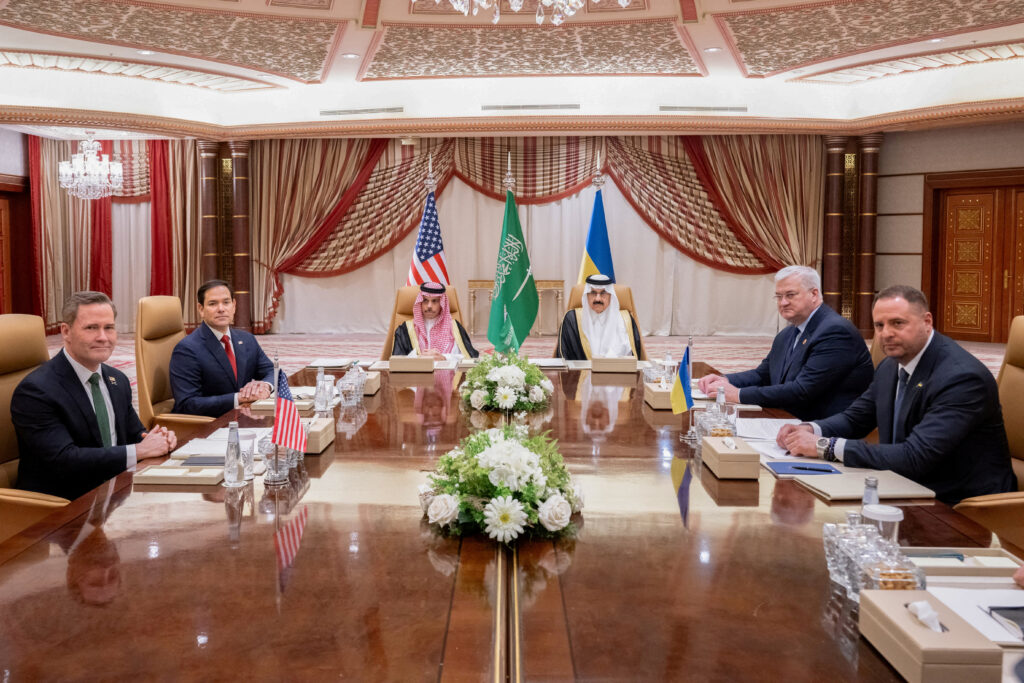
UKRAINE and RUSSIA Ceasefire: A Shocking Step Toward Peace
— The United States will resume military aid and intelligence sharing with Ukraine. This decision follows recent talks in Saudi Arabia. Kyiv is ready to accept a U.S. proposal for a 30-day ceasefire with Russia.
This marks a big change in the ongoing conflict between Ukraine and Russia. The proposed ceasefire aims to lower tensions and open the door for more diplomatic talks. Both countries have been locked in long hostilities, affecting regional stability.
The agreement highlights the U.S.'s commitment to supporting Ukraine against Russian aggression. Military aid is vital for Ukraine’s defense, while intelligence sharing boosts strategic abilities. This move could lead to more comprehensive peace talks soon.

UKRAINE’S Shocking Move: US Ceasefire Plan Accepted
— Ukraine and the United States announced a major development on Tuesday. After discussions in Saudi Arabia, Ukraine agreed to a U.S. proposal for a 30-day ceasefire with Russia. This decision comes as the U.S. resumes military aid and intelligence sharing with Kyiv immediately.
The joint statement from both countries highlights their cooperation amid ongoing tensions with Russia. The ceasefire aims to provide a temporary halt in hostilities, allowing diplomatic efforts to take center stage.
This move is seen as a strategic step by the Biden administration to stabilize the region temporarily while exploring long-term solutions. Critics argue that such measures may only offer short-lived relief without addressing deeper issues in Eastern Europe.

UKRAINE CEASEFIRE: US Backs Peaceful Hope In Russia Conflict
— The United States will restart military aid and intelligence sharing with Ukraine. This decision comes after talks in Saudi Arabia, where Kyiv accepted a 30-day ceasefire proposal from the U.S.
This move aims to ease tensions in the ongoing conflict with Russia. The joint statement highlights cooperation between the U.S. and Ukraine to stabilize the region and explore peace options.
The agreement is a crucial step towards potential resolution, though challenges remain as military actions continue in the area. Both nations express hope for a peaceful outcome through this temporary truce.

US RESUMES SECURITY Support to Ukraine: A Bold Move for Peace
— The United States will restart military aid and intelligence sharing with Ukraine. This decision comes after Kyiv showed it is ready to accept a U.S.-proposed 30-day ceasefire with Russia.
This action is part of a larger diplomatic plan to stabilize the region amid ongoing tensions. US officials emphasize how crucial this aid is for Ukraine’s defense and regional stability.
Both countries are in talks to reduce conflict and find lasting peace solutions. Restarting support marks a big step in US-Ukraine relations during these tough times.

US RESUMES MILITARY AID to Ukraine: A Bold Move Amid Ceasefire Talks
— The Trump administration has announced the immediate resumption of military aid to Ukraine. This decision aligns with Ukraine’s openness to a 30-day ceasefire, signaling a potential shift in the ongoing conflict. Delegations from both sides engaged in discussions for several hours, with more talks planned.
President Donald Trump is set to speak with Russian President Vladimir Putin about a possible ceasefire. Ukrainian President Volodymyr Zelensky has been invited back to the White House for further discussions. The Russian Foreign Ministry expressed willingness for continued dialogue with U.S. representatives, sparking hope for a peaceful resolution that respects Ukraine’s sovereignty.
Safety concerns have escalated following a tragic midair collision involving an Army helicopter and an American Airlines jet near Ronald Reagan Washington National Airport in January 2025. All 67 individuals on board both aircraft perished, prompting NTSB investigator Jennifer Homendy to urge the FAA to implement urgent safety measures immediately.
On the economic front, Asian markets are experiencing significant declines amid global sell-off trends impacting investor confidence worldwide. Japan, South Korea, and Taiwan saw market drops of about 2% as part of this broader financial downturn following the S&P 500’s worst day of the year on March 11th.
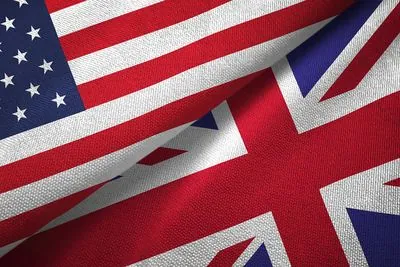
US HALTS Intel SHARING with Ukraine: A Dangerous Turn in Conflict
— The United States has paused its intelligence sharing with Ukraine, confirmed by the National Security Adviser. This decision comes amid rising tensions in the ongoing conflict with Russia. The pause is expected to significantly impact Ukraine’s military operations and intelligence capabilities.
Increased military activity along Ukraine’s borders raises concerns about Russia’s intentions. The U.S. administration cites a need to reassess intelligence protocols due to security risks involved. Analysts warn that without U.S. intel, Ukraine may struggle to counter potential Russian attacks effectively.
This development is part of broader geopolitical tensions involving global players like China, which recently expressed readiness for conflict with the United States. The implications for international relations are significant as this situation unfolds further.

UK on EDGE: Anti-Immigrant UNREST Sparks Fear
— British authorities are on high alert due to rising anti-immigrant tensions. Prime Minister Keir Starmer emphasized the need for vigilance at a press conference in Solihull. Emergency meetings with law enforcement have been held to address potential violence.
Far-right activists circulated a list of over 100 targets, including immigration lawyers’ offices. Despite fears, anticipated protests did not materialize as planned. A strong police presence and counter-protesters helped prevent unrest.
Counter-protesters carried signs like “Refugees Welcome” and chanted slogans to protect immigrant service centers from attacks. Their efforts were crucial in maintaining order amid xenophobic sentiments.
Authorities remain committed to peace as tensions persist across the UK, preparing for any further disturbances that may arise from anti-immigrant unrest.
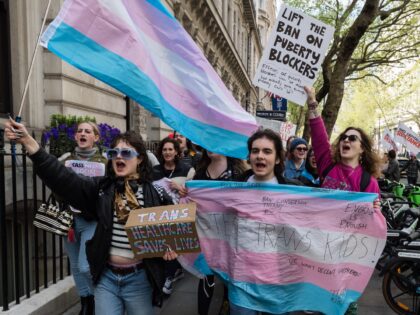
UK’S BOLD Move: PUBERTY Blockers Banned for Kids Indefinitely
— The United Kingdom has decided to keep puberty blockers outlawed for children, Health Secretary Wes Streeting announced. He emphasized that children’s healthcare must be evidence-based. The Commission on Human Medicines found current treatments for gender dysphoria pose safety risks.
Streeting cited the Cass Review, which questioned the benefits of puberty blockers and highlighted significant risks. He stressed the need for caution when dealing with vulnerable young people and following expert advice. Clinical trials will continue next year to establish a clear evidence base for these drugs.
The government plans to work with NHS England to open new gender identity services after closing Tavistock Centre over safety concerns. Puberty blockers were banned by NHS in March, followed by emergency legislation in May prohibiting prescriptions for minors in all healthcare sectors.
TransActual UK challenged the ban legally, claiming it was unlawful to use emergency powers this way, but Britain’s High Court upheld it. The decision was influenced by Dr Hilary Cass’s report that undermined key aspects of the transgenderism movement’s arguments regarding children’s treatment.
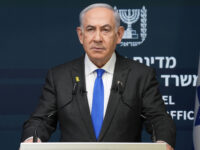
UK SUSPENDS ARMS Exports To Israel: Critics Fear Hamas Empowered
— The new leftist UK government has suspended several weapons export licenses to Israel. Despite Labour leadership claiming the decision was apolitical, critics argue it emboldens Hamas. Israeli Prime Minister Benjamin Netanyahu condemned the move as “shameful,” noting British citizens were among those killed and held hostage by Hamas.
British Jews, including Chief Rabbi Ephraim Mirvis, criticized the suspension, arguing it falsely portrays Israel as violating International Humanitarian Law. They emphasized the need for solidarity against common threats from Iran and its proxies. The Board of Deputies of British Jews expressed “deep concern,” warning that the decision sends a dangerous message to terrorists.
UK Defence Minister John Healey defended the action as adherence to international law, not political bias. He informed Israeli Defense Minister Yoav Gallant before making the announcement public. Critics remain unconvinced, viewing this as a misguided step during Israel’s critical time of need.

— China SLAMS US for Expanding Export Control List, Promises Retaliation The Chinese government has criticized the United States for adding more companies to its export control list and has vowed to take countermeasures
— **Armored Vehicles Ram into Bolivia’s Government Palace Amid Coup Concerns** Amid coup concerns, armored vehicles breach Bolivia’s government palace while President Luis Arce denounces irregular troop deployments in the capital
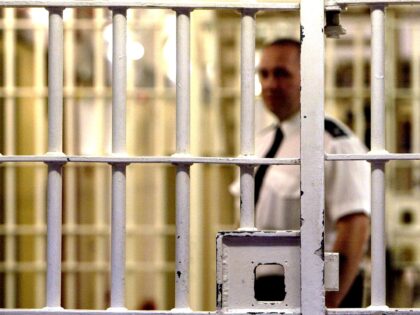
BRITAIN HALTS Arrests: Chaos Looms Amid Prison Crisis
— The National Police Chiefs’ Council (NPCC) has advised British police to suspend “non-priority arrests” and halt operations that could lead to many arrests, according to the Times of London. The NPCC memo stressed that public protection remains a priority but suggested pausing certain activities to ease pressure on the criminal justice system.
The advice includes not jailing suspects for alleged burglaries if on-the-scene forensics or CCTV reviews are pending. Non-intelligence operations that can be delayed should be postponed. However, large-scale protests and public events should still be prioritized by police forces.
This guidance comes as male prisons face potential overcrowding by June due to judicial delays from COVID-19 lockdowns and barrister strikes. To address this, the government extended an emergency early-release scheme allowing some prisoners, excluding sex offenders and terrorists, to be released up to 70 days early starting Thursday.
Additionally, the government approved delaying court cases, meaning some suspects will be released on bail while awaiting trial rather than being held in custody. The Ministry of Justice has not disclosed how many prisoners have been freed under these measures since their implementation in October.
— US Halts Bomb Shipment to Israel Citing Civilian Safety Concerns Concerns over civilian safety prompt the US to pause a 2,000-pound bomb shipment to Israel amid fears of potential civilian casualties in Rafah operation
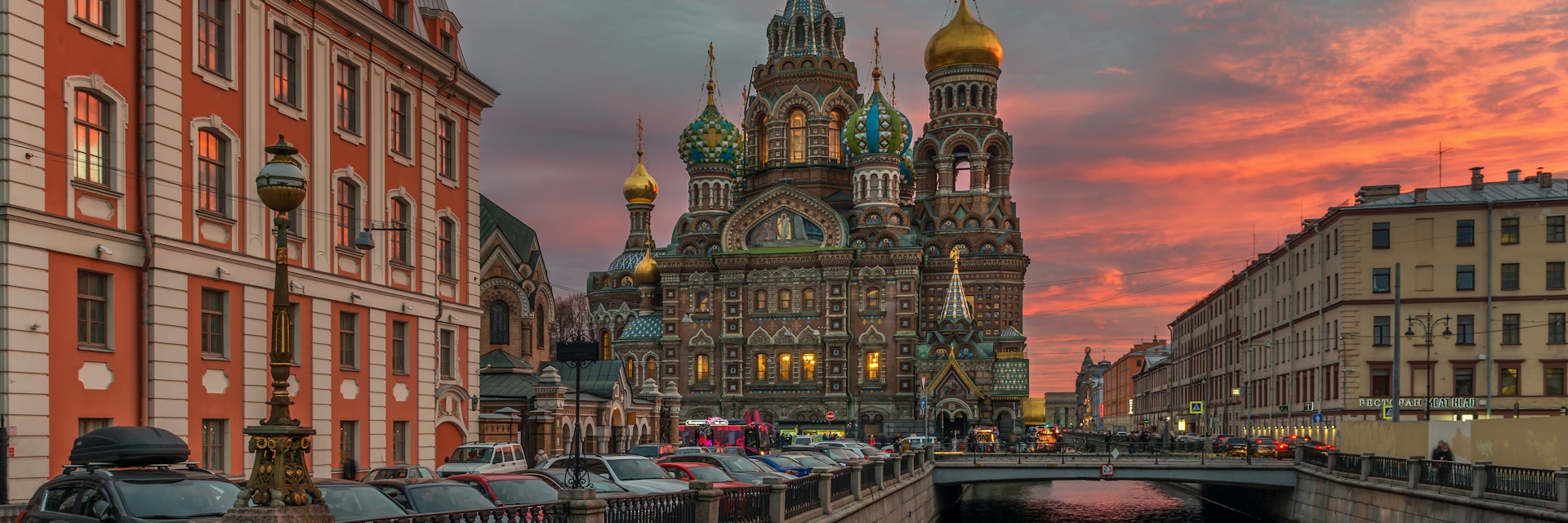
RUSSIA’S Nuclear Warning: UK Military Sites in Crosshairs Amid Escalating Tensions
— Russia has heightened tensions by threatening to target UK military bases. This aggressive stance follows Britain’s decision to supply weapons to Ukraine, which Russia alleges have been used against its territory. This threat emerges as Russia prepares for President Vladimir Putin’s fifth term inauguration and the national Victory Day celebrations.
In a bold response to what it describes as Western provocations, Russia is set to conduct military drills that simulate the use of tactical nuclear weapons. These exercises are unique because they focus on battlefield nuclear capabilities, unlike typical maneuvers involving strategic nuclear forces. Tactical nuclear weapons are intended for localized impact, minimizing broader destruction.
The global community has expressed deep concern over these developments. U.N. spokesman Stephane Dujarric voiced worries about the increasing talk of nuclear arms usage, describing the current risks as “alarmingly high.” He emphasized the need for nations to refrain from actions that might lead to misjudgments or catastrophic consequences.
These events underscore a critical moment in international relations, highlighting the delicate balance between national defense and global security threats. The situation calls for careful diplomatic engagement and a reassessment of military strategies by all involved nations to prevent further escalation of tensions.
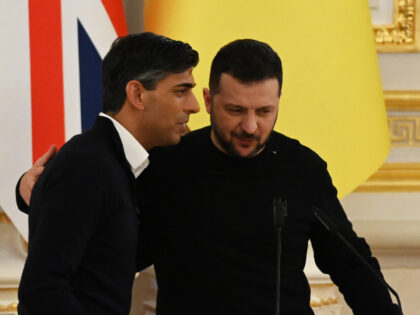
UK’S RECORD Military Aid to UKRAINE: A Bold Stand Against Russian Aggression
— Britain has unveiled its largest military aid package for Ukraine, totaling £500 million. This significant boost raises the UK’s total support to £3 billion for the current financial year. The comprehensive package includes 60 boats, 400 vehicles, over 1,600 missiles, and nearly four million rounds of ammunition.
Prime Minister Rishi Sunak stressed the critical role of supporting Ukraine in Europe’s security landscape. “Defending Ukraine against Russia’s brutal ambitions is crucial not just for their sovereignty but also for the safety of all European nations,” Sunak remarked before his discussions with European leaders and NATO’s chief. He cautioned that a victory for Putin could pose threats to NATO territories as well.
Defence Secretary Grant Shapps emphasized how this unprecedented aid would bolster Ukraine’s defense capabilities against Russian advances. “This record package will equip President Zelenskiy and his courageous nation with essential resources to repel Putin and bring back peace and stability to Europe,” stated Shapps, reaffirming Britain’s dedication to its NATO allies and European security overall.
Shapps further underscored Britain’s unwavering commitment to support its allies by enhancing Ukraine’s military strength which is vital in maintaining regional stability and deterring future aggression from Russia.

— Ukraine Nears Ammunition Crisis: Air Defense Missiles to Deplete by Month End Reports indicate Ukraine is on the brink of an ammunition crisis, with air defense missiles dwindling to critical levels, risking city defenses by month end

— SECOND Labour Candidate Suspended for Offensive Comments: Former Labour MP Graham Jones suspended for using offensive language towards Israel

UK-CANADA Trade Talks GRIND to a Halt: The Beef and Cheese Battle That’s Costing Billions
— The UK government has unexpectedly put the brakes on post-Brexit trade talks with Canada. This sudden move follows a two-year stalemate over beef and cheese imports and exports, which began after Britain officially left the European Union.
Trade between these nations, valued at roughly 26 billion pounds ($33 billion) per year, has mostly persisted under the initial agreement made while Britain was still an EU member. However, Canadian negotiators are feeling the heat from their own beef industry and local cheesemakers. The former is pushing for access to the UK market for hormone-fed beef, while cheesemakers are raising alarms about tariff-free imports of British cheese.
The privilege of tariff-free British cheese exports came to a halt at the close of 2023 when a temporary agreement expired. This change led to a staggering 245% duty hike for British producers. Canada’s trade minister Mary Ng firmly stated that Canada “will never agree to a deal that isn’t beneficial for our workers, farmers and businesses.” Minette Batters, president of the National Farmers’ Union in England and Wales praised Britain’s resistance against hormone-fed beef imports.
Despite this hiccup in negotiations, the UK government remains open-minded about future discussions. However, any significant progress appears unlikely at present.

US and UK GEAR UP for Imminent Strikes on Yemen’s Houthi Forces: A Tense Standoff Unfolds
— The United States and the United Kingdom are making strategic moves near Yemen, hinting at a potential offensive against the Houthi forces. This includes positioning sensitive air and naval assets in the region, alongside a U.S.-led naval task force.
The Iran-backed Houthis have recently escalated tensions by launching multiple attacks on civilian shipping vessels in the Red Sea. These assaults have severely disrupted international shipping routes, compelling many companies to reroute their vessels around Africa’s southern tip. This diversion has led to increased time and costs.
While specific details about the military forces positioned closer to Yemen are not disclosed, it is confirmed that both strike and supporting platforms are involved. The Eisenhower carrier strike group is currently stationed off the Yemeni coast with four F/A-18 fighter squadrons and an electronic warfare squadron.
Given these developments, it appears increasingly probable that strikes against Houthi targets inside Yemen will be executed by U.S. and U.K. forces in the near future.
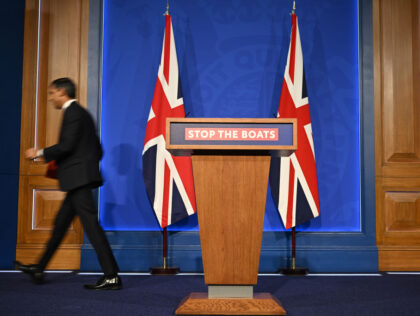
UK Government’s RWANDA Deportation Plan DERAILS: A Major U-Turn in Policy Revealed
— The UK government has confessed that it can’t assure any Rwanda deportation flights will depart before the forthcoming general election. This revelation from Chancellor Jeremy Hunt marks a significant shift from Prime Minister Rishi Sunak’s earlier statements. The Supreme Court recently deemed the Rwanda plan unlawful, prompting Sunak to hustle to regain control of the situation.
In an interview with Sky News, Hunt expressed optimism for flights next year but conceded, “We can’t guarantee that.” The United Kingdom is set for a general election next year at the latest by early January 2025. Current polling suggests that the ruling Conservatives are likely to be defeated.
An ex-government minister responsible for this policy cautioned that it won’t work as the government lacks boldness to implement necessary steps for deportations. Sunak had previously pledged in an emergency address to eliminate any further obstacles to enforce this policy and ensure planes depart as scheduled in Spring next year.
This reversal pushes back the revised date for deportation flights further into the future than initially expected. Despite this drawback, James Cleverly, new Home Secretary (interior minister), maintains they are “absolutely determined” to see them
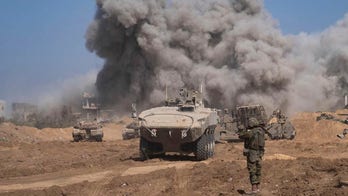
UK Parliament SHUNS Cease-Fire Call Amid Israel-Hamas CONFLICT: A Blow to Labour Party Unity
— The UK House of Commons has recently dismissed a proposed amendment that urged the government to demand a cease-fire in the ongoing conflict between Israel and Hamas. The Scottish National Party presented this amendment, but it was turned down by 290 Parliament members, while only 183 voted in favor.
This decision is perceived as a significant blow to Keir Starmer, the leader of the Labour Party. Despite his efforts to display unity within his party ahead of next year’s national election, fifty-six members from his own party backed the amendment.
Following this setback, Starmer expressed disappointment over his colleagues’ lack of support for his stance. He said, “I wanted my position on this matter to be clear and consistent,” after the vote.

Video
UK HALTS Israel Arms Exports Amid GROWING Conflict
— The United Kingdom has suspended 30 out of its 350 arms export licenses to Israel. This decision, announced on September 2, 2024, comes amid rising concerns over the conflict between Israel and Hamas in Gaza. UK Foreign Secretary David Lammy stated that the suspension aims to ensure compliance with international humanitarian law.
The Labour government initiated this review in July, shortly after taking office. Lammy clarified that this is not a full embargo but a precautionary measure to reassess existing licenses. The UK remains committed to supporting Israel as an important ally while upholding humanitarian standards.
Reactions have been mixed. Human rights organizations welcomed the move as a step towards preventing potential violations of humanitarian laws by British arms. However, Israeli officials and their supporters are concerned about its impact on bilateral relations and security cooperation.
This decision adds to the growing international scrutiny over military aid and arms sales to conflict zones like Gaza. As the review continues, both nations will need to balance their strategic partnership with human rights considerations.
More Videos
Invalid Query
The keyword entered was invalid, or we couldn't gather enough relevant information to construct a thread. Try checking the spelling or entering a broader search term. Often simple one-word terms are enough for our algorithms to build a detailed thread on the topic. Longer multi-word terms will refine the search but create a narrower information thread.
Politics
The latest uncensored news and conservative opinions in US, UK, and global politics.
get the latestLaw
In-depth legal analysis of the latest trials and crime stories from around the world.
get the latest
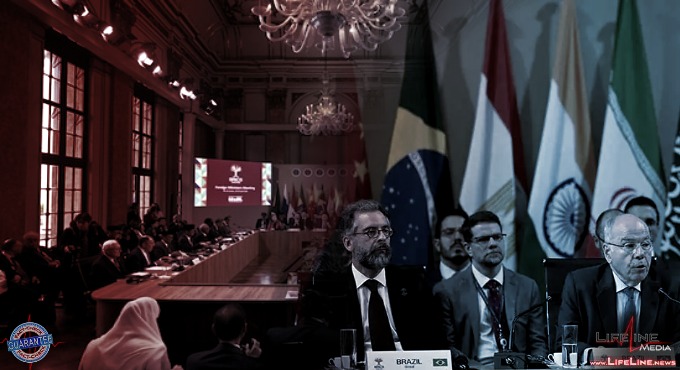
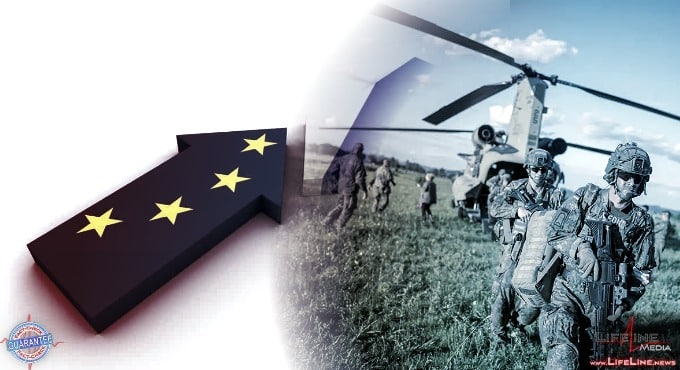
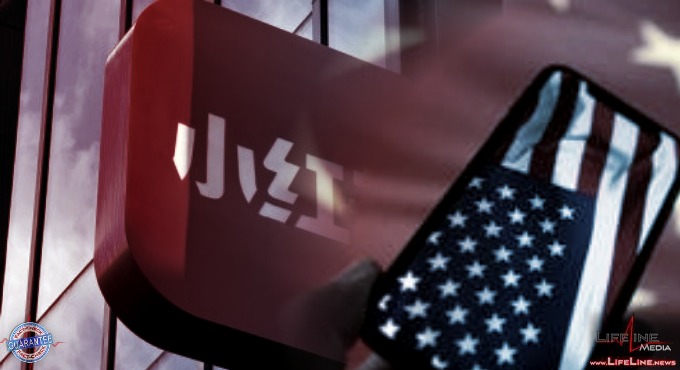
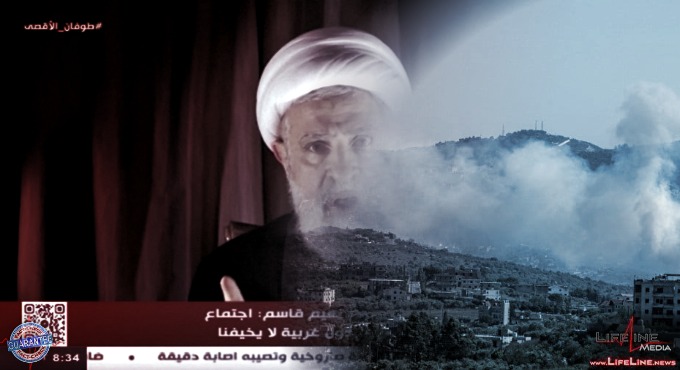
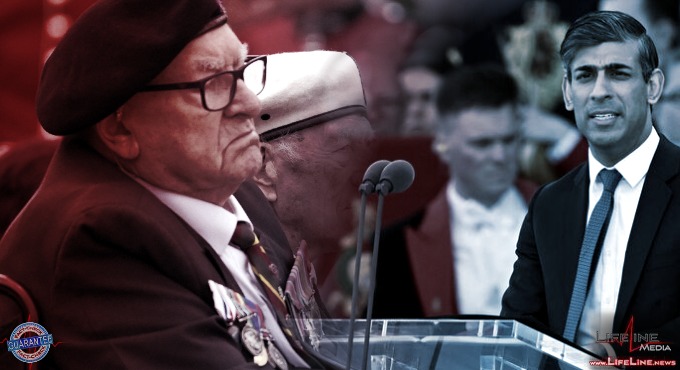
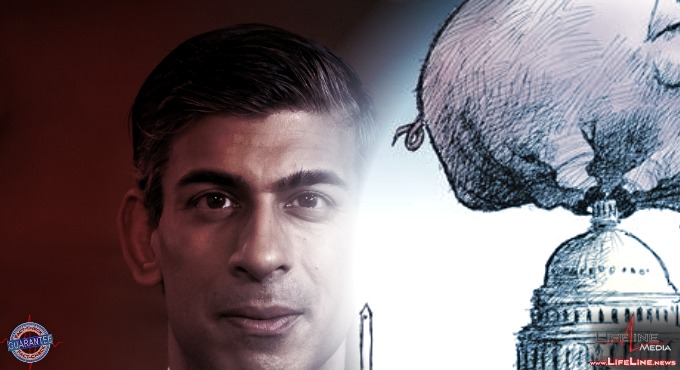
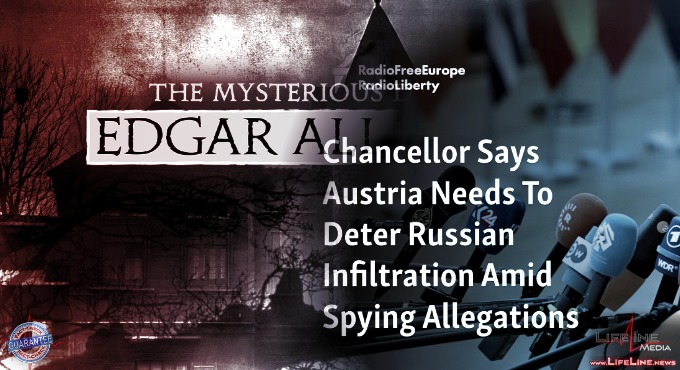
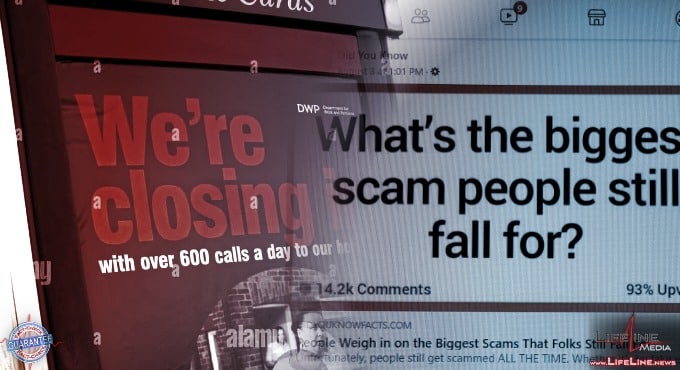
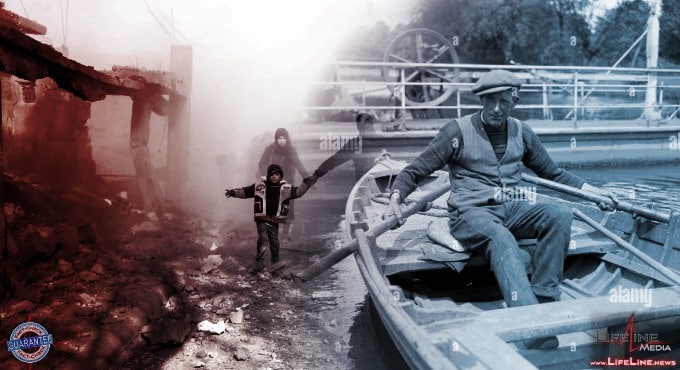
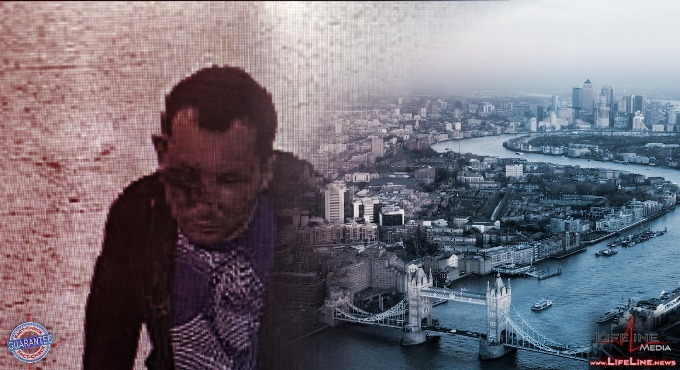

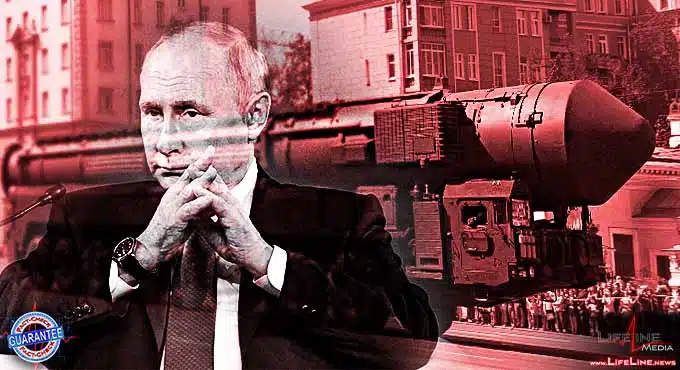
Social Chatter
What the World is SayingAnother day, another Hamas exploitation of “humanitarian aid.” IDF forces found a Hamas weapons stash hidden inside UNRWA bags — just 80 meters from a school and 100 meters from a hospital...
. . .🔴ELIMINATED: Deputy Head of Hezbollah’s Weapons Smuggling Unit 4400 The IAF conducted an intelligence-based strike on terrorist Hussein Ali Nasr, deputy head of Hezbollah’s Unit 4400....
. . .Swift removal of Tren de Aragua gang members from our state and country is a priority!
. . .Swift removal of Tren de Aragua gang members from our state and country is a priority!
. . .S/Korea Impeached Pres. Yoon Suk Yeol Arrested After Investigators Scale Walls. S/Korea Impeached Pres. Yoon Suk Yeol Arrested After Investigators Scale Walls S/Korea Impeached Pres. Yoon Suk Yeol Arrested After Investigators Scale Walls #breakingnews #tinubu #bolaahmedtinubu ...
. . .